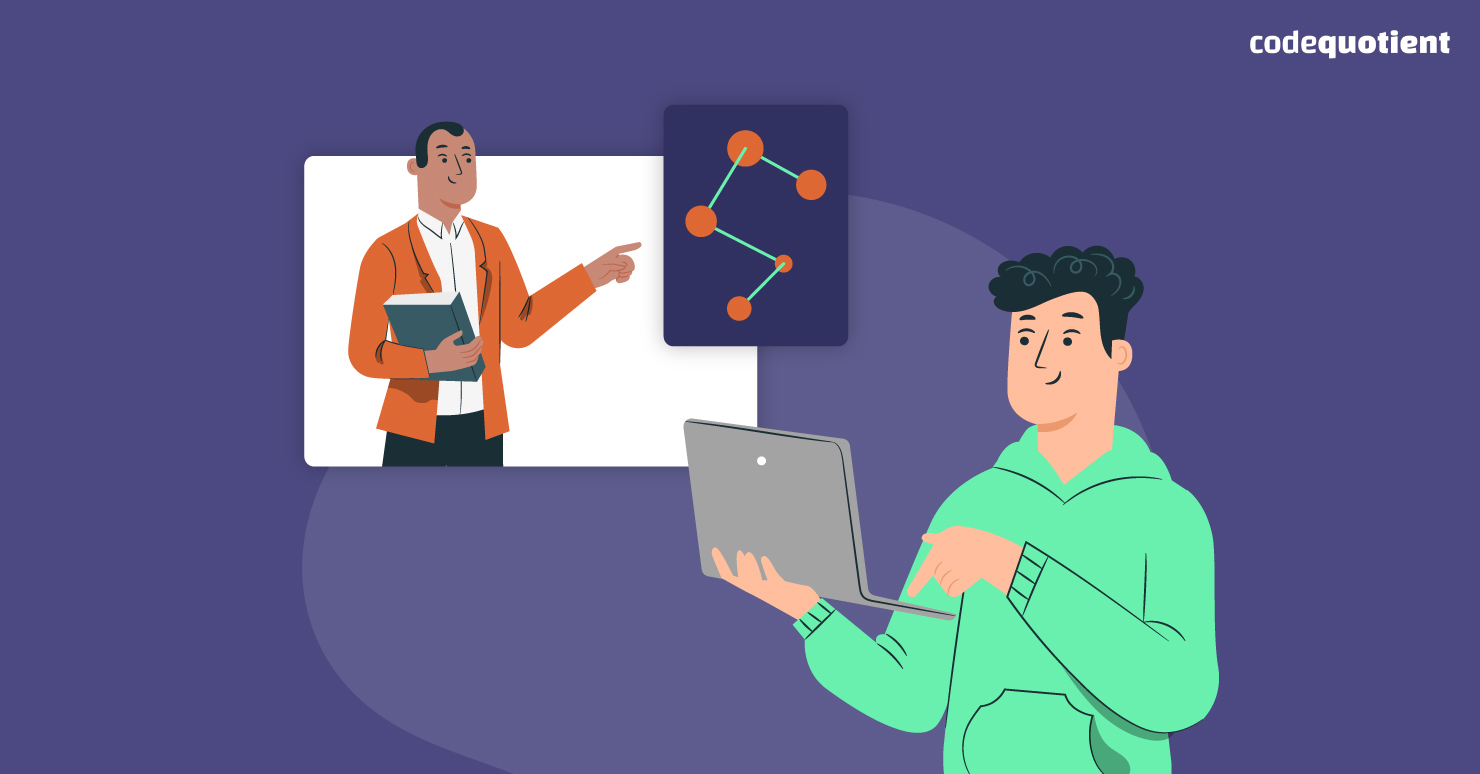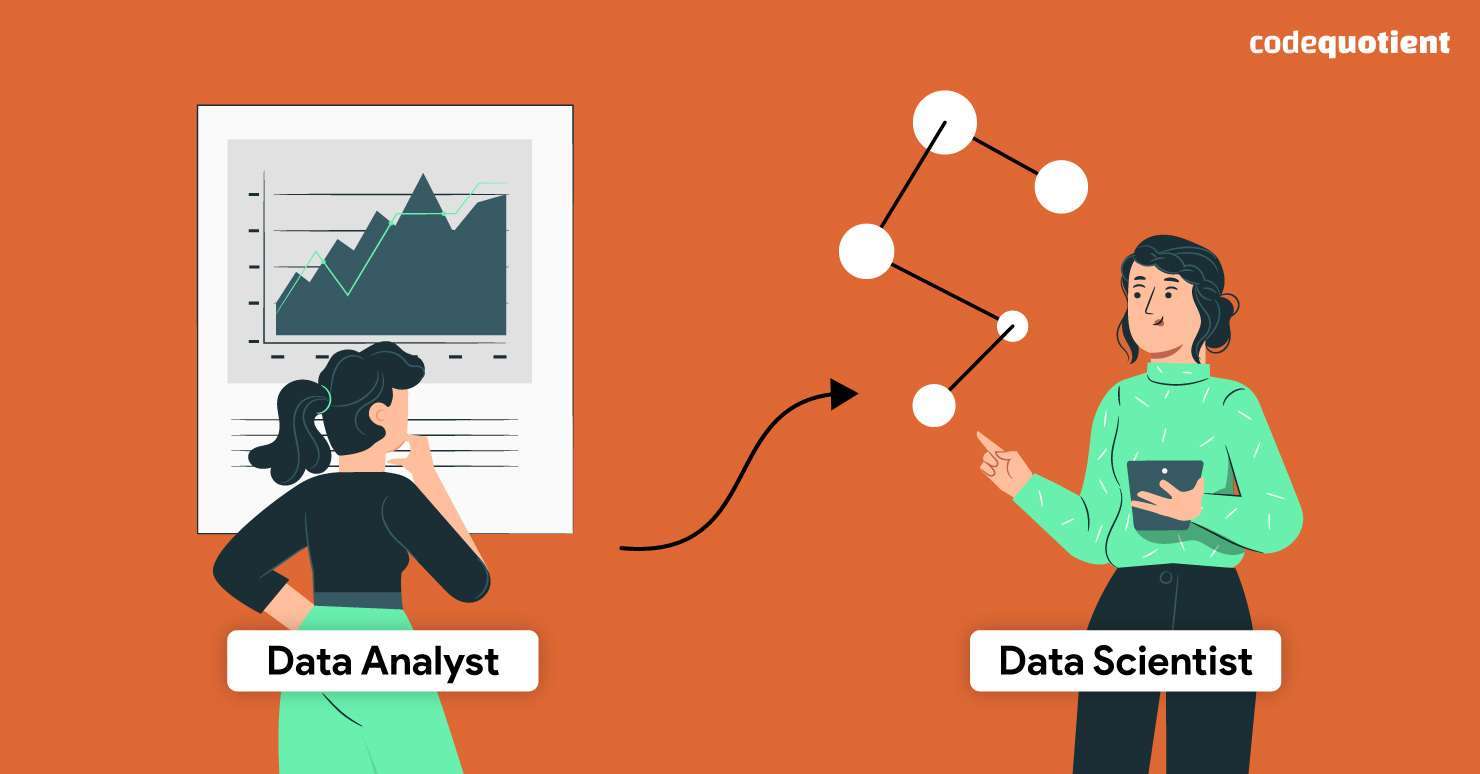“Data is the new oil” – These were the words of British mathematician Clive Humby. These wise words ring truer every day since data is the driving force behind entire industries and holds a lot of value and power.
For those already playing with data in their day job as a data analyst while daydreaming about being a data scientist, a data structures course is just what the doctor ordered. Even though these two disciplines might seem like completely separate career paths, the skills of a data analyst can be leveraged as the basic building blocks for a successful career as a data scientist.
Before any interview preparation you should know there are many ways to become a data scientist, we will explain the key stages you can expect to clear during your journey. We provide a thorough introduction to the subject and a glimpse of the journey so that you can get started, whether you are an experienced data analyst searching for a new challenge or are new to the profession and looking to change career streams.
Enrolling in a data structures & algorithms course is beneficial for students. Click here to know why!
How are Data Analysts different from Data Scientists?
In simple terms, data analysts collect, analyse, access, and arrange the data to extract meaningful insights so the organisation can make informed decisions based on factual information from the data.
However, data scientists work with much more complex problems and deal with all kinds of data, such as structured, unstructured, and unorganized data sets derived from varied sources. While analysts work with already existing data, data scientists worry about which data is important and how to collect it.
Interested in knowing what scenario-based SQL questions can be asked in your interview? Click here!
How Can a Data Structures Course Help You Become a Data Scientist?

While anyone can go through a data structures course, a good candidate needs to have the following set of skills so they can apply the knowledge gained from the course and become a true data scientist:
- Critical and creative thinking
- An analytical outlook toward questions
- Problem-solving and presentation skills
Since a data analyst is already familiar with analytics, the tree data structures course can help them cultivate an experimental mindset, promote out-of-the-box thinking, nurture a deep understanding of statistical methods of data examination, and gather the necessary technical skills required for the job as follows:
Data languages
Since data manipulation requires dealing with data, knowing dynamic programming languages is necessary. Advanced Python and R are the best ones for beginners to learn.
Click here to read six Python interview questions and get a feel for what a data science interview can be like!
Machine learning algorithms
As some data sets can be up to petabytes in storage, many data science jobs require good knowledge of automation and artificial intelligence. A data scientist can develop novel test cases using machine learning algorithms.
Databases
Almost all data comes in some form of a database. Databases can be of many types: relational, centralised, cloud-based, network, hierarchical, MySQL, PostgreSQL, MS-SQL, and NoSQL databases. Knowing how to interact with a database is a key skill for anyone who wants to deal with data.
Want to know how important SQL is to become a Data wizard? Click here to learn more.
Distributed computing
Since it is the age of the cloud, gone are the days when all the hardware running behind the scenes was in one box. Today, there can be different components running different software at different places, and knowing how to make them talk is very important in collecting data from all the points. For this objective, data scientists use Hadoop, MapReduce, and Spark.
Data visualisation
They say pictures can speak a thousand words! And they’re not wrong. Visualizing the data can help derive insights that may have previously been buried within heaps of text and spreadsheets. Some tools that can be learned in a data structures course to visualise data effectively are Plotly, RShiny, ggplot, Matplotlib, etc.
Did you know an advanced Data Structures course can increase your placement chances? Read here to learn how.
API knowledge
If software is the body, APIs are the limbs. But having a digital body comes with the benefits of swapping limbs. A data scientist must know how to use powerful third-party APIs like Microsoft Azure, OpenAI, OAuth, and IBM Watson to supercharge their productivity and extract superhuman insights from the data.
Special bonuses
Skills such as NLP (Natural Language Processing), OCR (Optical Character Recognition), Computer Vision, Deep Learning, Neural Networks, and Big Data Manipulation set you apart from the pack. It can be learned in a popular data structures course, such as the SuperCoders program offered by CodeQuotient.
Things To Learn (And Do) Within a Data Structures Course?
A good data structures course should cover the following important topics for you to transition from a data analyst to a data scientist successfully:
It has a good structure
While there’s no substitute for hard work, it is important to ensure your hard work is being spent doing the right things. Look for a course that gets you working on real-life projects, as they will look good on your résumé and get you noticed by employers.
Covers ML and other efficient algorithms
Many can use existing tools and technologies, but a true data scientist shines brightest when creating solutions from scratch. Hence, covering things like decision trees and sorting binary search algorithms is essential for any data structures course.
Teaches relevant programming languages
While most data analysts can do their jobs with a cursory knowledge of Python, a good data scientist must have a solid understanding of both Python and R. This helps immensely when dealing with large data sets and demonstrates a strong foundational knowledge of databases.
Where Can You Find a Great Data Structures Course?
Well, your search for the Data Structures Course ends here. CodeQuotient offers a program called Software Engineering Bootcamp, a detail-oriented online course for learners who want hands-on practice and project-based learning from accomplished industry data gurus.
Apply now and prepare for the next and best career phase!




